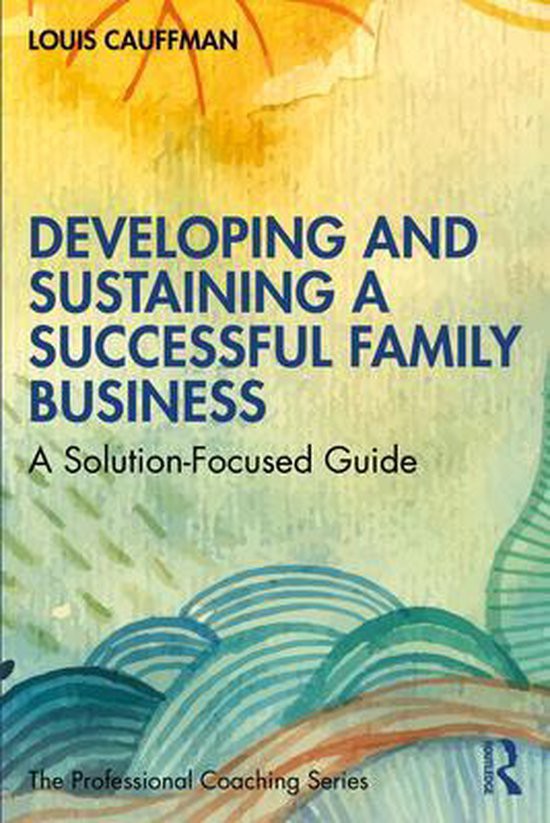It’s a Family Affair
Developing and sustaining a sucessful family business
Jan 19, 2023
Louis Cauffman & Andrew Gibson

Conversation with Louis Cauffman and Andrew Gibson above Louis Cauffman & Andrew Gibson
Book reviewed by Andrew Gibson
I once met a new client who owned a small boutique hotel. She wanted to retire and pass her business on to her children. Unfortunately, neither of her children wanted to take the business on. So what was she to do? She needed help. In this small example, just one difficult family business problem is apparent. How do you help family businesses where there is all the added complexity of family ownership and involvement?
Louis Cauffman has worked extensively with Family Businesses over the last three decades. In that time, he was one of the early adopters of Solution Focused Practice and was the first to transform the therapeutic approach and apply it in a business context. With so much learning and experience to share, it would have been easy for Louis to present us with a 600-page monster! He took the more challenging route and wrote a much shorter book. The result is exceptional. This book is packed with useful tools and their application, with resources and references for further reading. At just over 200 pages, it is easy to read and digest and, importantly, to apply.
‘Developing and Sustaining a Successful Family Business – A Solution-Focused Guide’ conforms to the established Solution Focused maxim: it’s simple, but not easy. Louis’ book has multiple applications for family businesses and those that support them. Instead of committing every possible scenario and combination of options to the page, Louis has given us a set of tools and woven them together with a story. The story of John and Annie, and their family business.
When I started to read this book, I wasn’t sure where this would take me. Authors often blend business tools with a fictional application as a narrative thread, and often the outcomes disappoint. In this book, the outcome is a paragon of synergy. By sharing the story of John and Annie’s family business, Louis provides practical applications with context and takes the opportunity to keep the reader engaged. As with a great novel, I wanted to know what happened in the next chapter, and that kept me reading with interest to the end.
As a teenager, I worked for a Fuel Station Business owned by Murdo McLean and his family. Murdo was from the Isle of Skye in Scotland and spoke only Gaelic until he was 12 years old. He had a work ethic all his life, and even though I was just a teenager, he would often share his hopes and dreams for his business as he neared retirement. Louis explores the challenges faced by people like Murdo. There are many options open to the first-generation founders, and within the options are many considerations to take. In one lovely passage, while explaining the Family Business Framework, the reader can see how the Solution Focused approach is integral to Louis’ work. Where I have heard many consultants describe and discuss how to separate family and business, Louis prefers instead to discuss ‘how to combine the rational world of a business and the emotional world of a family’. SF runs through this book from cover to cover. Throughout, there are great insights and resources for SF practitioners.
I must praise Louis for some specifics. For example, by page 17, the reader is equipped with a complete SF toolkit. By comparison, it takes a further 20 pages to introduce the Family Business Life Cycle! For this reason, the application of the toolkit to the fictional John and Annie works well and helps keep the book simple to read and understand.
This book set out to help people who own or work in family businesses, those who support them, and those other stakeholders who interact with them. While it is true to its brief, it is also an excellent resource for business owners not related by birth or marriage, and the business coaches and consultants who support them too. While the ownership of a business may not be such a significant topic in a non-family owned business, this book’s practical tools and advice will help in many common scenarios.
I enjoyed reading this book, and I learned a lot. As a business coach working with charities, I recognised many ways to apply this book in my practice. I highly recommend this book to those involved in organisations, either as owners or employees, or as coaches or consultants.